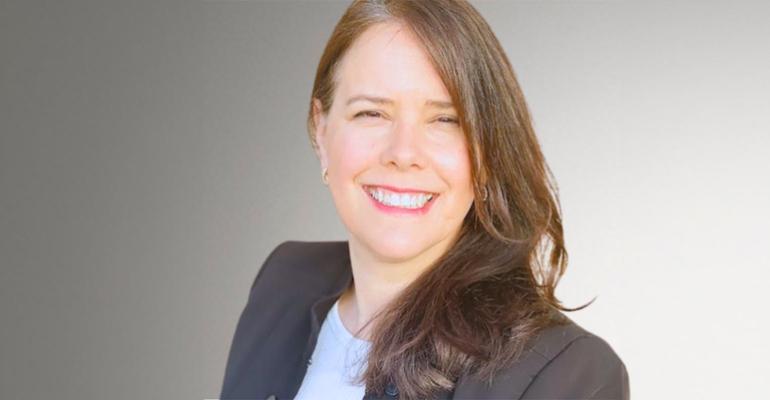Jeannette Kuda has been named chief operating officer of TIFIN’s artificial intelligence platform, TIFIN AG.
Most recently, Kuda served as senior vice president and COO of Wealth Management Solutions for LPL. Before that, she worked for TIAA, leading the Trust Company and Private Asset Management divisions for nearly a decade.
TIFIN AG was recently spun off from TIFIN. The platform uses algorithms to answer advisors' questions on topics such as where they can find new leads that fit their target profile, how to uncover new connections for client referrals, which clients or assets are at risk, how to find future clients within a specific company and more.
Founded by Vinay Nair in 2018, TIFIN has morphed into a fintech platform that builds technology in-house or through joint ventures with financial services firms. It started out as a startup incubator, studio and holding company and grew to more than a dozen businesses, several of which have now been combined into TIFIN Wealth, a full-scale platform for wealth managers. It also operates Magnifi, a natural-language search-powered marketplace.
In May 2022, TIFIN announced the close of its $109 million Series D funding round, which included Franklin Templeton and Motive Partners joining previous investors Hamilton Lane, J.P. Morgan Asset Management, Morningstar and Broadridge.
Cerulli Report: Heavy Technology Users Are More Efficient And Grow Faster
While the findings are unlikely to surprise anyone, they do reinforce what we have been seeing in studies and research for years now: "Challenges to the effective use of technology that advisors most frequently identify are compliance restrictions that limit functionality or impose other limitations on advisors’ ability to use the technology (73%), followed by a lack of integration between tools/applications (71%) and insufficient time to learn and implement (70%)." Those results are from The Cerulli Report—State of U.S. Wealth Management Technology 2024.
The research also found advisors who consider themselves heavy users of technology (almost 30% of those surveyed) outperformed other practices in terms of new client growth rates and assets under management growth rates over the most recent three-year period.
So, perhaps unsurprisingly, Cerulli found heavy technology users “average materially better performance than light users across practice productivity metrics.” Among those improved metrics are "higher numbers of clients served per staff member across the practice—the number of clients per producing advisor, the number of clients served per professional staff, and the number of clients per senior advisor.”
When it comes to which tools advisors attribute most to improving their operational efficiency, they cite e-signature the most at 65%, CRM at 44%, and video conferencing at 29%.
Study: Firms Must Differentiate Themselves Through Technology to Keep Affluent Millennials
Firms that want to keep affluent millennial clients must prioritize personalized digital experiences and be open to their feedback, according to an F2 Strategy study.
F2 Strategy conducted the survey in February, and respondents included 38 RIA, wealth management and asset management firms totaling around $6 trillion in AUM.
The firms queried said they were interested in catering to this younger demographic. Still, they admitted they haven’t done much to find out what this population wants or how effective their actions are.
Though 81% of firms reported believing a compelling client experience would be critically important in the next three to five years, 58% said they did little to no research with clients to define that, and only 21% reported tracking return on investment.
The firms offered different reasons for these findings, including the feeling of being at the mercy of custodians and large technology companies, being unable to deliver on feedback, the fear of inviting compliance complaints and needing better integration in their tech stacks.
The report suggested that firms engage these clients through surveys and interviews to maintain a representative sample of client opinions.
MyVest Expands Tax-Aware Portfolio Transitions for its Strategic Portfolio System
MyVest has released the latest version of its Strategic Portfolio System, which extends its tax-aware portfolio transition capabilities.
It includes support for transitions across a firm’s managed account programs, including SMAs, UMAs and bank trusts. Firms can also choose to have transitions advisor-managed or delegated to a home office team for bulk management.
Transition plans can be auto-generated and configured by default. The firm can give advisors the option to selectively delegate ongoing transition management to a central team.
Advisors can also transition legacy holdings in the most tax-efficient way over time, engage in proactive tax-loss harvesting and aggregate, track and manage groups of portfolios in transition daily.
MyVest, a subsidiary of TIAA, serves large enterprise providers, including independent brokers/dealers and banks.
MyVest was awarded Best Rebalancing Provider for its Portfolio Management Suite at the 2018 WealthManagement.com Industry Awards.

